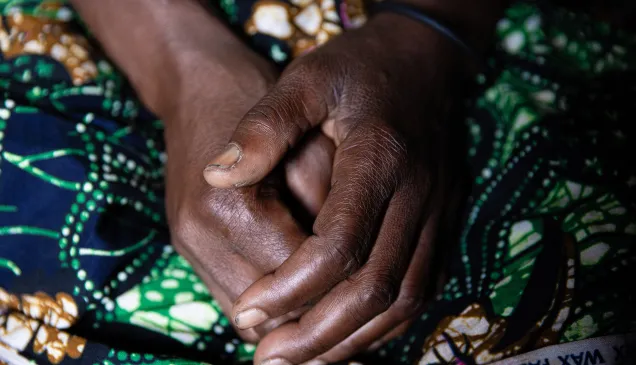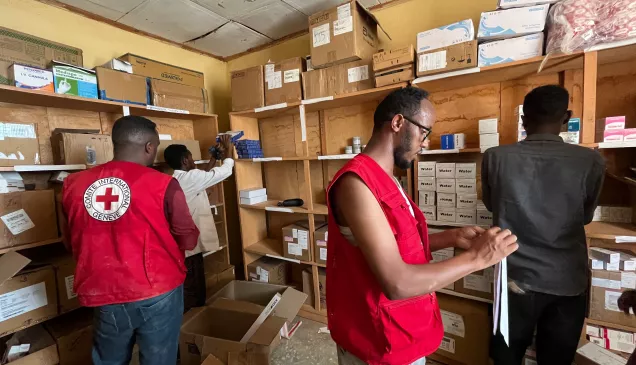Colombia: Living in the shadow of armed conflict
Thousands of Colombians continue to live in the shadow of armed conflict, suffering the effects of a situation they have no control over at all.
While attention was turned to tackling the impact of the COVID-19 pandemic on public health, the economy, and society as a whole, the humanitarian consequences of conflict and violence in Colombia worsened.
According to the figures, the effects of armed conflict and violence were higher in 2021 than any other time in the past five years.
There are currently six armed conflicts occurring in Colombia, alongside other types of violence, all of which are drastically affecting people's lives. The reconfiguration of non-state armed groups and the rise in armed clashes, social control and territorial disputes have intensified pressures on the civilian population and presented new challenges for humanitarian assistance.
Listening to the voices of victims

Lorenzo Caraffi
Head of the ICRC's delegation in Colombia
The events of the past few years have presented hugely complex challenges worldwide. The COVID-19 pandemic has affected us all, but not equally. Colombia has had to contend with escalating violence and armed conflict as well as the effects of the virus.
The country has made great strides, especially in terms of vaccinating its population against COVID-19. However, challenges remain both in achieving adequate vaccination coverage and in addressing the consequences of armed action in various parts of the country.
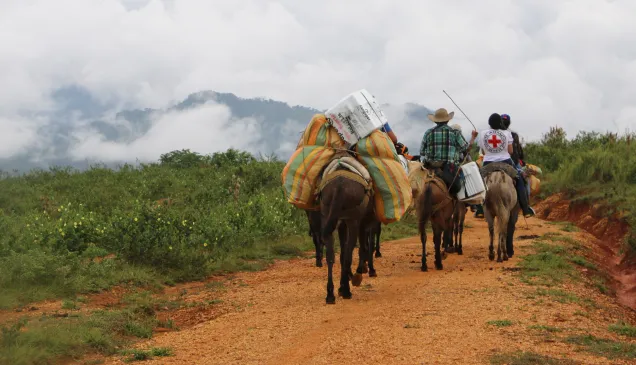
In 2021, our humanitarian work benefited 534,000 people.
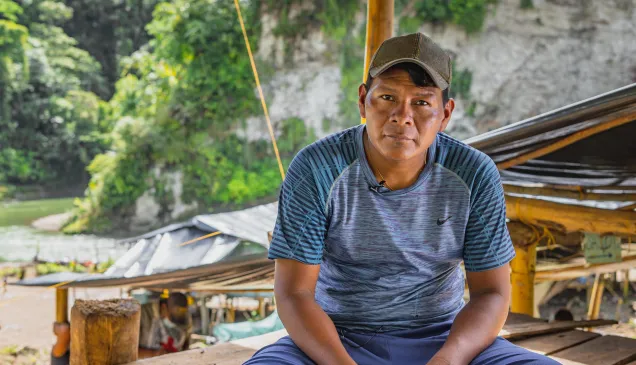
In 2021, we registered 52,880 displaced persons in 123 events, which occurred in 11 departments.
Explosive hazards: a latent threat
In 2021, we recorded 486 victims of explosive hazards*, the highest number in the past five years. The phenomenon is clearly worsening with a direct impact on the civilian population, since most victims are civilians.
The presence of explosive hazards in various parts of the country is leading to multiple humanitarian consequences. The most visible of these are injury, mutilation and death for direct victims, reflecting the profound suffering they can cause.
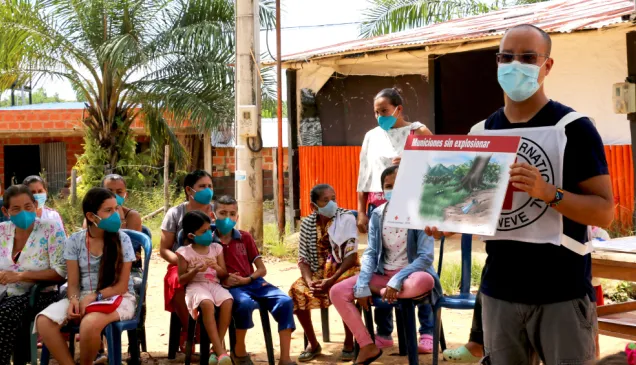
13,973 people living in areas affected by the presence of explosive hazards received accident-prevention training.
Missing persons: a humanitarian tragedy that must not be forgotten
Thousands of families in Colombia continue to experience the uncertainty and agony of not knowing the fate or whereabouts of a loved one, despite the fact that, in many cases, they went missing several years or even decades ago.
Meanwhile, new cases of missing persons continue to be reported across the country and the measures that have been implemented to prevent this are insufficient. Proof of this is that in 2021 we documented every two days, on average, a new case of disappearance related to armed conflicts and violence.
READ MORE: MISSING PERSONS, A HUMANITARIAN TRAGEDY THAT MUST NOT BE FORGOTTEN
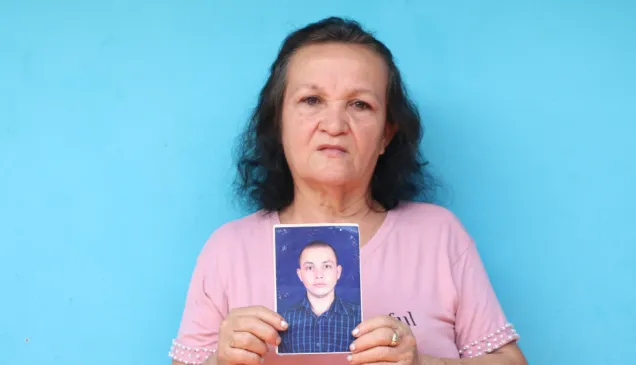
161 relatives of missing people obtained information about the whereabouts of their loved ones, with our support. Eighty-six people were found alive.
Health care in danger
It is becoming increasingly dangerous to deliver health care in Colombia, especially in areas worst affected by armed conflicts and violence. Attacks on health-care workers, facilities and vehicles have increased considerably over the past three years. In 2021, the national health-care board recorded 553 such attacks, which is 70 % more than in 2020.
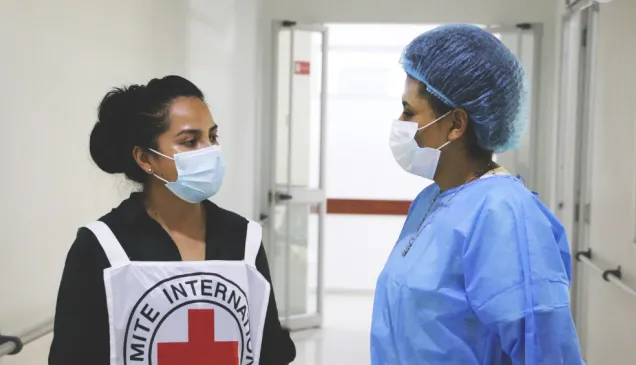
According to figures from the national health-care board, in 2021, 553 attacks against workers in the health sector were recorded.
Prisons, migration and use of force
The COVID-19 pandemic has led to complications in many detention facilities in Colombia. Not only have there been outbreaks of the virus among detainees, but also visiting restrictions have meant that detainees have had less contact with family members, lawyers, judges and human rights workers, among others.
On the other hand, the migrant population with a vocation to stay also settles in departments affected by armed conflicts and violence, which exposes them to danger due to their unfamiliarity with the context, but also due to rejection, stigmatization and xenophobia.
At the global level, we saw increased levels of social unrest in 2021, and thousands of protesters took to the streets for different reasons. Colombia was no exception. The maintenance of public order was a constant challenge for state security forces in both urban and rural areas, testing their ability to respond in ways that respected international rules and standards on the use of force.
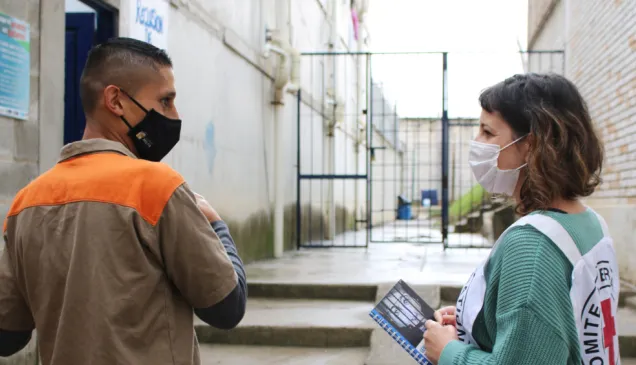
14.678 servicios de llamadas facilitaron que las personas privadas de la libertad se comunicaran con sus familiares.
Confidential dialogue with weapon bearers
During the pandemic, we continued to carry out our humanitarian work in an impartial, neutral and independent manner.
Our bilateral and confidential dialogue with weapon bearers and people affected by armed conflicts and violence enabled us to reach the remotest and most inaccessible parts of the country, where no one else could.
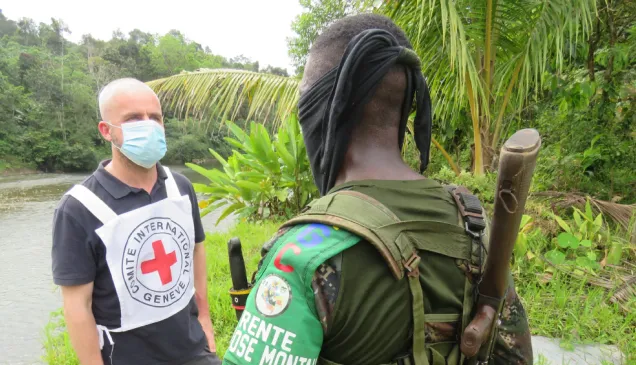
In 2021, we helped to release 27 people held by armed groups – one of the highest numbers in recent years.
Calls to action from the ICRC to Colombia in 2022
The reality of the Colombian population living in the midst of armed conflicts and violence remains complex. As a result, we want to send a message to the state authorities, armed bearers and civil society through these recommendations






